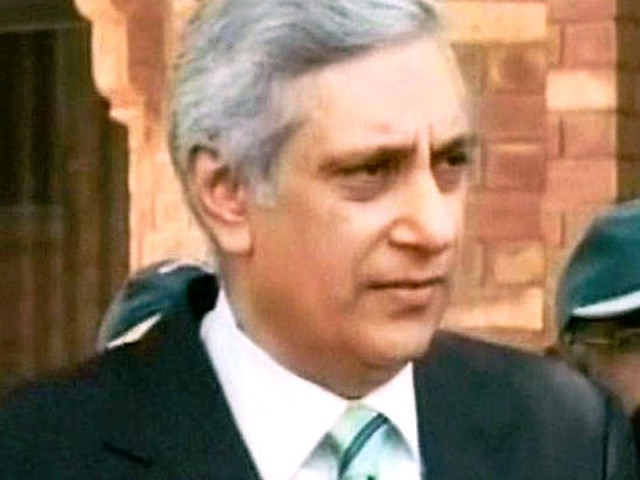Contempt law case: AG accuses SC bench of being biased
Tells court to ignore Aitzaz Ahsan, Raza Rabbani’s opposition to law.

As the contempt of court law case nears its conclusion, the firebrand attorney general of Pakistan raised temperatures in courtroom number 1 on Thursday by objecting to the Supreme Court’s bench, terming them biased.
The five-member bench, led by Chief Justice Iftikhar Muhammad Chaudhry, which is likely to announce its short order on the case today (Friday), challenged Attorney-General Irfan Qadir to name the judges, after which he backed down.
During the case proceedings, which have already seen over two dozen petitioners challenge the new contempt of court law, Qadir also asked the court to ignore the views of some leading Pakistan Peoples Party (PPP) legal brains that had opposed the law when it was being passed by parliament last month.
On Wednesday, the chief justice had pointed out that Senators Aitzaz Ahsan and Raza Rabbani were not in favour of the new law. Qadir, however, claimed that the two neither represented the majority of parliament nor the party policy.
The court asked the attorney-general to name the judges he opposed and file in writing his reasons for calling them biased, but the chief justice didn’t stop short of accusing him of making baseless accusations against the judges. “This is not the first time you have raised objections over the constitution of a bench (in the middle of the proceedings),” said the chief justice, adding that if he had raised the issue earlier, the court would not have wasted 10 days of hearings.
Qadir, himself a former judge, replied: “To avoid any kind of misunderstanding, I don’t press the question of bias.”
Citing the conviction of former premier Yousaf Raza Gilani for not following court orders, Qadir asserted that, the court was essentially asking the former premier to violate Article 248, which he could not do as a sworn member of parliament. He also claimed that after Gilani’s ‘unconstitutional’ conviction, there was a need to enact a new law.
The chief justice, however, questioned whose side Qadir was raising the question of being “biased” from, since he was not representing the government in this case, while the federation’s lawyer had not said a single word in this regard.
Justice Khilji Arif observed that since no appeal was filed by the government against Gilani’s conviction in the due timeframe, the matter could not be discussed any more.
The bench also observed that due deliberations were not held before introducing the new law. Qadir said that the same thing could be done now if the court engaged amicus curiae (friend of the court) in the case.
However, realising the attorney general wanted to prolong the proceedings, the bench ignored his suggestion once again.
Qadir is likely to conclude his arguments today.
Published in The Express Tribune, August 3rd, 2012.



















COMMENTS
Comments are moderated and generally will be posted if they are on-topic and not abusive.
For more information, please see our Comments FAQ